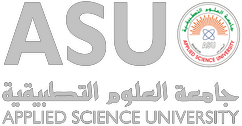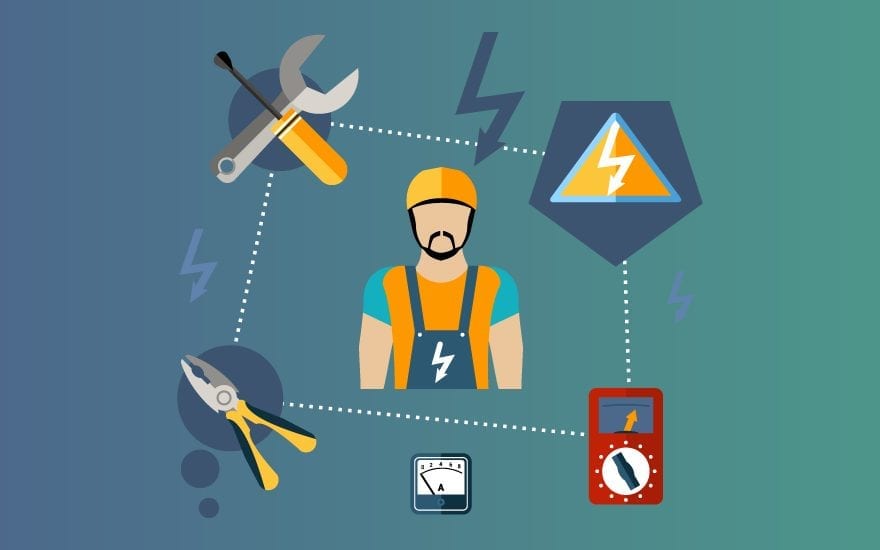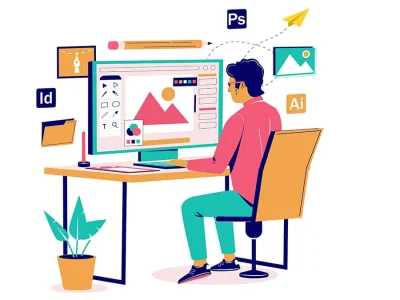This dual-award programme is intended for undergraduate students who wish to study the discipline of Electrical and Electronic Engineering to Honours degree level and who may wish to achieve professional status later on. This programme is designed to embrace industry developments, particularly the ECUK UK Standard for Professional Engineering Competence (UK-SPEC).
The programme has a first-year (Level S) that is shared with the other programmes in the College of Engineering. It is designed to bring school leavers in Bahrain and the Gulf region to a standard acceptable for progression to a Level 4 engineering degree programme equivalent to UK approved engineering programmes. The first year is designed to prepare students with the necessary knowledge and skills to continue with their studies at the specialist levels (Years 2/3/4) of the 4-year programme. The first year covers the fundamentals of mathematics and science, and students also learn how to use relevant technology. During the first year, three compulsory modules are required by the Higher Education Council in Bahrain: ‘Arabic Language’ (or ‘Arabic Language for Non-Arabic Speakers’), ‘Bahrain Civilisation and History’, and ‘Human Rights’. These are part of the Kingdom’s strategy to strengthen the level of the Arabic language and promote the Arabic culture.
Upon successful completion of the degree programme, a student will be awarded two sets of certificates and transcripts – one from LSBU and one from ASU. Thus, these are validated programmes that lead to dual certificates.
The BEng (Hons) Electrical and Electronic Engineering (ASU) aims to:
Produce engineering graduates who have demonstrated:
- Understanding of key aspects of Electrical and Electronic Engineering, including the acquisition of coherent and detailed knowledge, at least some of which is at, or informed by, the forefront of defined aspects of a discipline.
- A broad base of active knowledge in Electrical and Electronic engineering and the skills necessary to update, extend and deepen it for career development or further study. This includes:
- Appropriate mathematics and circuit theory.
- Digital, analogue and particularly hybrid electronic systems, at all levels.
- Computer hardware and software at all
- The theory and applications of control
- The ability to apply the methods and techniques that they have learned to review, consolidate, extend and apply their knowledge and understanding, and to initiate and carry out design
- The ability to analyse electrical and electronic engineering components and systems from first principles through to advanced simulation techniques, understand the advantages and disadvantages of different analysis approaches and be able to select an appropriate
- Practical skills, including basic design and measurement skills, awareness of advanced software and hardware tools and techniques to inform design
- The ability to critically evaluate arguments, assumptions, abstract concepts and data (that may be incomplete), to make judgments, and frame appropriate questions to achieve a solution – or identify a range of solutions – to a problem.
- Skills in managing their own learning and making use of scholarly reviews and primary sources (for example, refereed research articles and/or original materials appropriate to the discipline).
- Qualities and transferable skills necessary for employment such as the exercise of initiative and personal responsibility, the decisions making in complex and unpredictable contexts, and the learning ability needed to undertake appropriate further training of a professional or equivalent nature.
- Appreciation of the importance of developing their professional skills and being able to apply a professional engineering approach in their activities, including innovation and enterprise.
Undergraduate Tuition & Fees
The estimated duration for completion of a Bachelors Degree at Applied Science University is 4 years. This is structured around 150 credit-hours .
Estimated Tuition Fees (Year 1)
| Fees Per Credit Hour | 180 BD | |
| Year 1 (Level S) semester 1 | 2700 BD | |
| Year 1 (Level S) semester 2 | 3240 BD | |
| Year 1 (Level S) Summer semester | 1620 BD | |
| Total Year 1 (Level S) | 7560 BD | |
| Total Year 1 (Level S) – After Scholarship | 25% (High school average of 100% – 95%) | 5670 BD |
| 20% (High school average of 94% – 85%) | 6048 BD | |
| 15% (High school average of 84% – 70%) | 6426 BD | |
Estimated Tuition Fees (Year 2 & 3 & 4)
| Fees Per Credit Hour | 180 BD | |
| Years 2 & 3 & 4 (Levels 4 & 5 & 6) semester 1 | 3240 BD | |
| Years 2 & 3 & 4 (Levels 4 & 5 & 6) semester 2 | 3240 BD | |
| Total Per Annum For The Years 2 & 3 & 4 (Levels 4 & 5 & 6) | 6480 BD | |
| Total Per Annum For The Years 2 & 3 & 4 (Levels 4 & 5 & 6) – After Scholarship | 25% (High school average of 100% – 95%) | 4860 BD |
| 20% (High school average of 94% – 85%) | 5184 BD | |
| 15% (High school average of 84% – 70%) | 5508 BD | |
Notes:
– The above is an approximate calculation as per the study plan per year.
–The fees may increase/decrease depending on the registered courses per semster.
–The tuition fees are paid every semester in three instalments: The First instalment when registering the courses and the Second instalment prior to the Mid-Term exams and the Third instalment prior to the Final Exams.
Other fees:
For other Fees see our Tuition Fees, Refund and Collection Policy, by clicking the link:(PDF File 391 KB)
Course Features
- Lectures 0
- Quizzes 0
- Duration 30 hours
- Skill level All levels
- Language English
- Students 25
- Assessments Yes





